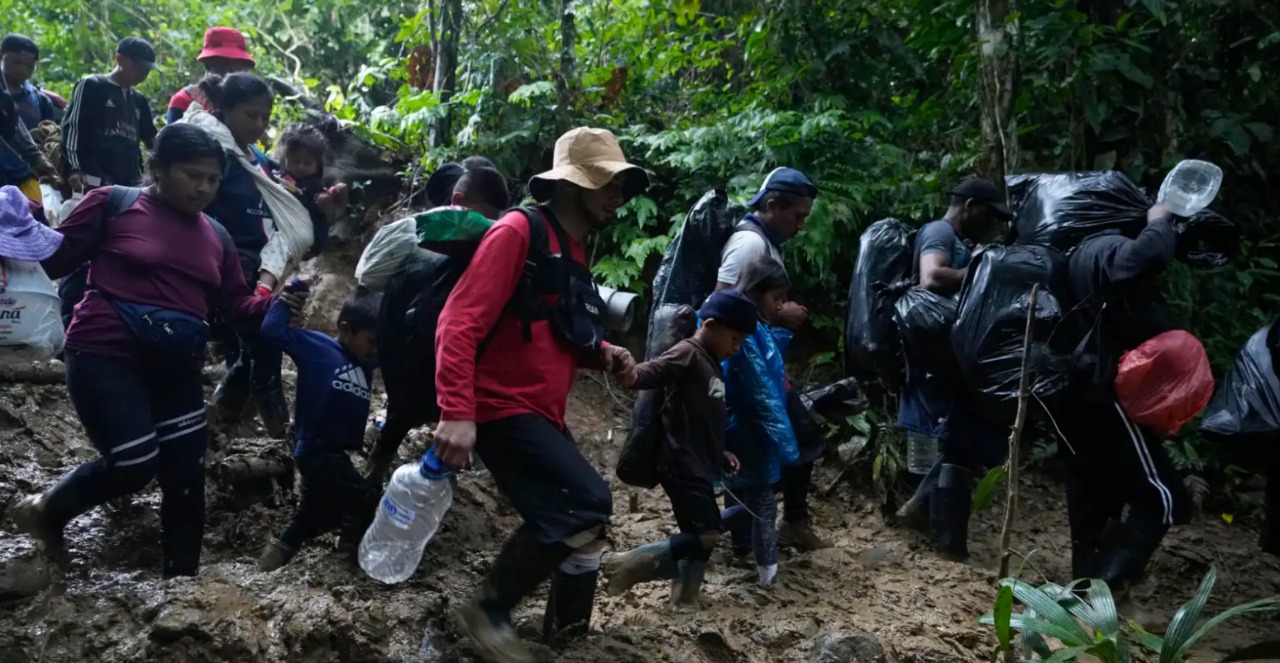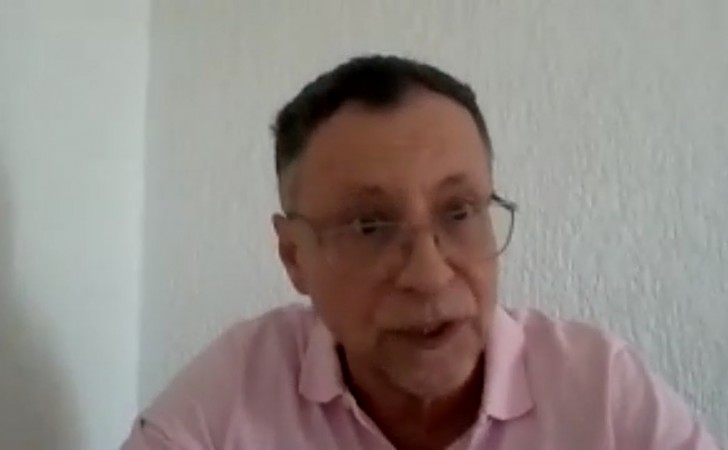Panama City, (EFE).- Up to 500,000 migrants in Latin America and the Caribbean could require humanitarian aid in 2023, according to the forecasts of the International Federation of Societies of the Red Cross and the Red Crescent (IFRC).
“The devastating socioeconomic effects of the covid-19 pandemic, the climate crisis, the ongoing political crises and catastrophes will continue to increase exponentially the movements of the population,” the IFRC Coordinator for Migration and Protection, Gender and Inclusion told EFE. in the Americas, José Félix Rodríguez.
On the often highly dangerous migration routes, many pedestrians “suffer accidents and injuries, face extortion and sexual violence, or go missing and are separated from their families,” while “others are killed or die from disease or conditions.” environmental”.
“We are especially concerned about women, children, the elderly, people with disabilities and LGBTIQ,” said Rodríguez, since these groups “are at extreme risk and need medical and mental health assistance, access to food and water, information, connectivity and resources to cover vital expenses such as paying for safe places to sleep.”
And those “humanitarian needs will continue to be a priority in 2023, when up to 500,000 people could require humanitarian aid,” he added.
The IFRC estimates this figure of 500,000 people in need of humanitarian aid based on entries and reports of irregular crossings from July to December 2021, considering a 45% increase scenario (most countries are above 100%). increase) and at least an aggregate of 173,176 from January to June 2022, according to an institution.
“Protecting people who migrate is a humanitarian imperative and a collective duty,” said the official of the international entity.
A TITANIC CHALLENGE AHEAD
In 20222, America experienced one of its worst migratory crises, with an increase in irregular travelers from the South to the North crossing the continent to reach the United States, mainly, and Canada, in search of better living conditions.
The migratory flow was led by the Venezuelan exodus, followed by Haiti, Cuba and Ecuador, which once crossed the deadliest point of the continent, Darién – the jungle that separates Colombia and Panama -, joining with nationals of Honduras, Guatemala, Nicaragua and Mexico on their way north, IFRC explains.
The main reasons for migration are the search for economic improvement, escaping violence or political instability, reuniting with their families and recovering from the impact of recurring disasters and extreme weather events – such as Eta and Iota or the earthquake in Haiti. , according to IFRC.
Rodríguez explained that migrants face “significant challenges” in the processes “of inclusion, integration and reintegration in the host and return countries.”
“However, our experience and local reach tell us that the job is not done and that we still have a daunting challenge ahead of us,” he warned.
HELP FOR 210,000 PEOPLE ON THE MOVE ACROSS LATIN AMERICA
Given this difficult context, the IFRC made an emergency appeal to support 210,000 people on the move over the next 12 months.
The Red Cross Societies of Panama, Costa Rica, Honduras, El Salvador, Guatemala and Mexico will provide migrants, refugees and returnees with medical and mental health care, access to water and sanitation services, and cash so they can cover essential expenses, such as accommodation or food, Rodríguez announced.
This would be complemented by a medium and long-term program based on the response on the route that includes actions for 4 years that support the migrant population in the countries of transit destination and return in 23 countries of Latin America and the Caribbean. .















